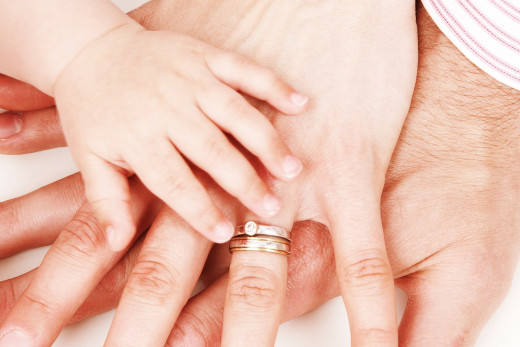What it Really Means to Honour Someone

Honour
No matter what culture or religion you grew up in, chances are good that you were taught to respect your elders. More specifically, you were probably taught to honour your parents. Perhaps you are struggling, as I did, to understand what is really being asked of you when instructed to honour someone.
What does it really mean? Does it mean to blindly obey? Should you be seen and not heard? Passively submit to their authority? I used to think so, because that is what I was told by the authority figures who wanted me silent and submissive. After extensive research, I discovered this is actually the opposite of what it means to honour someone.
Believe it or not, honouring someone is an active responsibility with many facets.
Accept Them For Who They Are
Often, we unintentionally punish our parents or mate for not being the person we want them to be. The first step to honouring someone is to realize that they are a "regular person." They have habits, quirks, unfortunate personality traits and communication styles just like everyone else. It can be especially difficult for children to look at their parents in this light, but it is important to remember that they are susceptible to the same failings and emotions as everyone else.
Children do not come with an instruction manual and mistakes will be made. Egos and insecurities get in the way. It is hard to say you're sorry. It is hard to break from the patterns we were taught as children. We all have room to grow. As with all relationships, it is necessary to have patience, compassion and empathy for the other person.
Despite their shortcomings, they love you the best way they know how. Honour them by accepting them for the man or woman they are.

Treat Them with Dignity and Respect
Of course this is the point that most people focus on, and for good reason. It is the "Golden Rule" across the globe that we treat others the way we want to be treated. This means being kind even when the other person is having a bad day and being a jerk about it. Speaking respectfully even when we disagree with them. Being careful to avoid doing or saying things that would belittle the other person or invalidate their authority in front of others (yes, even when they are wrong).
Unfortunately, many have the idea that being treated with dignity and respect means that the other person agrees all the time and relinquishes to their authority. This is not the case, as we will see.

Be Grateful
It may sound trite, but there are so many who go without. There is always someone who has it worse. One of the secrets to happiness is being able to find something to be thankful for. This goes for your relationships as well.
Whether it is a few minutes of quality time and attention or school supplies to get an education, there is always something we can express gratitude for. Celebrate the hard work and dedication of raising a child. Be mindful of the years spent putting your health and welfare before their own. Your parents will always be your parents. They will always be giving to you; money, time, space, love ... let them know you are aware of their gifts and appreciate them.
We honour them by acts of kindness, caring for them as best we can and keeping them connected to the family with phone calls, letters and cards.
Live with Integrity
Be aware of how your words and actions reflect on your parents or spouse. Do nothing to bring shame to yourself or your family. Instead, strive to live in a manner that will add to the greater good of the world and bring praise to your family.
Living in honesty, integrity and morality are the highest form of honour. Your strength of character is a testament to those who raised you and those who are connected to you.

Hold Them Accountable for Their Words and Actions
To honour someone means that we do not turn a blind eye on their words or actions. It is our responsibility to ensure that the person we are to honour behaves in an honourable manner. We need to speak up and hold the other person accountable to the highest moral order.
If your parent or spouse says or does something inappropriate or immoral, take them aside to privately and respectfully point out their indiscretion. To be honoured requires being worthy of that respect, so insist that they be more vigilant about their words and actions.
It may be beneficial to attend workshops together to explore the issues of respect, boundaries, integrity and/or communication. Or, perhaps spiritual retreats. Maybe listening to audiobooks on self-improvement together is something the other person would be open to. Whatever you do together to strengthen the bond and support healthy growth is time well spent in honouring each other.

Not Allowing Them To Transgress Against Us
Every spiritual path has an equivalent of "sin"; that action which transgresses, offends or goes against the divine law they live by.
It is vital that we honour our parents or spouse by not allowing them to transgress against us. The greater honour must be paid to our Creator by protecting the gift of life and self. Thus, we must not allow anyone to cause us harm; emotionally, mentally, physically, financially or spiritually.
To honour someone, we insist that they do not sin against us. Even if this means moving far away from them to prevent it. If this is the case, we continue to honour our parents by following the above responsibilities of living with integrity and sending cards, emails and photos to keep them connected.
In cases where all contact must be severed, it is sufficient to simply live in a manner that would make others say, "Your parents must be so proud of you."
We Are Not Bound to the Wicked

A child is not honour-bound to a wicked parent.
There are no exceptions to this.
If their actions bring harm, chaos, destruction and shame, you must remove yourself from their sphere of influence. This is vital for your survival, which is of prime importance to your Creator and to those who depend on you. Even if you are still young and do not have children of your own who depend on you, there are others in the world who need you sane and safe.
Personal Note
By following these truths, I was able to see my father as a regular human being with his own insecurities and vices. I honoured him from a distance and he eventually felt secure enough to grow. He has learned to love me for who I am. We have built a stronger relationship. All because I chose to treat him with the same dignity I want while still being true to myself and my Creator.
Final Thoughts
Unfortunately, those who want their children submissive will find these truths discomforting at first. However, truly honouring someone makes the relationship (and the individuals involved) stronger, better and happier.
I wish you strength and courage in your duty of honouring someone in your life. It is worth the effort.

Notes to My Younger Self
This article is based on a chapter from my book, Notes to My Younger Self: A Guide to Personal Happiness.
Other sample chapters from this book:
- Introduction
- There’s a Reason You’re Attracting Losers
- 4 Steps to Help You Love and Respect Yourself More
- The Three Month Rule
- Freeing Yourself From the Influences of Harmful Relatives
© 2012 Rosa Marchisella








